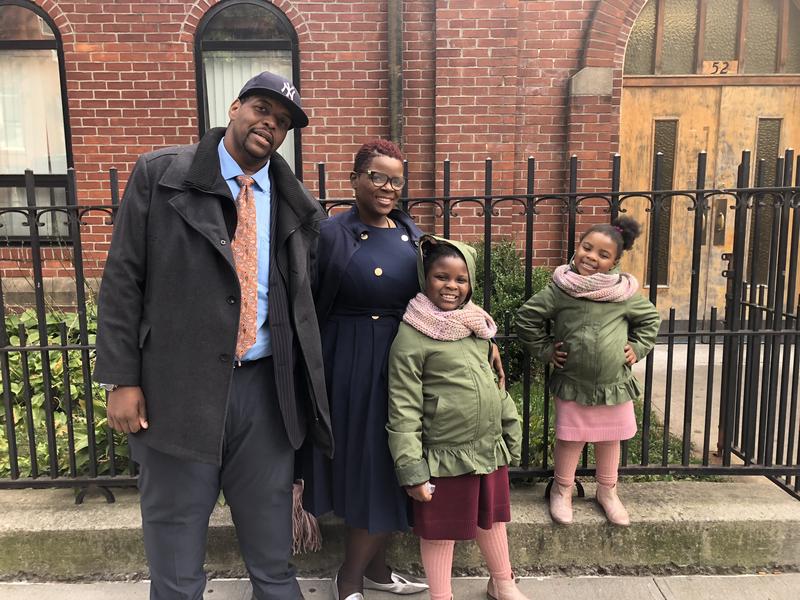
A Brooklyn woman is one of many New Yorkers who've recovered from COVID-19, but she's still figuring out how to cope with the disease around her, as the virus claims the lives of others in her community.
When Donna Perry learned she tested positive for the coronavirus last month, she made it a point to announce it publicly, with a Facebook video.
"I felt like I had a responsibility to put a different face to what the experience was, because my people in my community were confused," she said.
Perry is black. She now lives in Mill Basin, Brooklyn, but has been a long-time member of Brown Memorial Baptist Church in Clinton Hill. She's also a leader with East Brooklyn Congregations — a collection of churches with a social justice mission.
She says early on, coronavirus seemed like something you got if you traveled. And she says images in the media of people isolating at home were of people who did not look like her.
"They were quarantining in parts of their homes where they had separate bathrooms. They had separate living quarters. And that was not my reality."
Perry lives with her husband, two young daughters and her mother. Her coronavirus symptoms were like a bad flu, and she weathered them at home. Her mother and sister also contracted the disease, and are now okay.
But death is all around her. Perry lost one of her best friends to the illness, a woman who was just 40. At Perry’s church, at least eight people have died.
"It was something that just really made me wonder, like — why was I spared?" she said. "You can’t even mourn them appropriately. You can’t have funeral services for these people. So you really don’t have the closure that many of us need."
Perry says she does lean on her faith.
"My conversations with God have been pretty candid. They’ve been like, 'Dude, what are you doing?'"
For now, her days are busy. She has kids to homeschool and conference calls for her job at a non-profit. She and her husband have been out delivering meals to people who needed them.
"There hasn’t really been too much room to really process it. And I think that there hasn’t been too much room for anybody to really process it simply because it’s just all happening so suddenly."
Perry says she’s open to the idea that when this is all over, she might need therapy. But it’s definitely not over yet.
